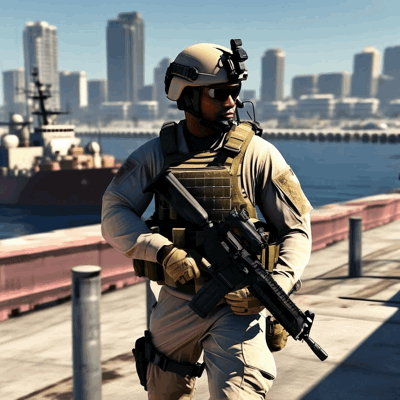Article 120 UCMJ: A Guide to Military Sex Offenses
Facing a court-martial, UCMJ action, Administrative Separation Board, or other Adverse Administrative Action for Article 120 UCMJ allegations? Call our experienced military defense lawyers at 1-800-921-8607 for a free consultation.
Elite Military Defense Lawyers
“Our military defense lawyers are among the most experienced and hard-hitting in the world. With an unparalleled track record, we provide aggressive, strategic defense tailored to each client’s unique situation. Trust us to fight relentlessly for your rights and deliver the best possible outcome.” (Michael Waddington, Military Defense Lawyer)
Military Defense Lawyers for Article 120 UCMJ Accusations
 Article 120 of the Uniform Code of Military Justice (UCMJ) addresses various forms of sexual misconduct and is one of the most serious charges a military member can face. This in-depth guide will explain this offense, its elements, potential defenses, and common misconceptions.
Article 120 of the Uniform Code of Military Justice (UCMJ) addresses various forms of sexual misconduct and is one of the most serious charges a military member can face. This in-depth guide will explain this offense, its elements, potential defenses, and common misconceptions.
Overview of Article 120 UCMJ
Article 120 of the UCMJ deals with sexual offenses, including rape, sexual assault, and other forms of non-consensual sexual conduct. The primary objective of Article 120 is to protect service members from sexual misconduct and to maintain the discipline and order within the military ranks. The article is comprehensive, covering a range of behaviors that constitute sexual misconduct.
Elements of Article 120 Offenses
Article 120 is divided into several subsections, each specifying different offenses. Here are the key elements for some of the most critical subsections:
Elements of Rape (Article 120(a))
- The accused committed a sexual act upon another person.
- The act was accomplished by using unlawful force, threat of force, or when the victim was incapable of consenting due to impairment, unconsciousness, or other conditions.
Elements of Sexual Assault (Article 120(b))
- The accused committed a sexual act upon another person.
- The act was without the consent of the other person.
Elements of Aggravated Sexual Contact (Article 120(d))
- The accused committed sexual contact upon another person.
- The contact was accomplished by using unlawful force, threat of force, or when the victim was incapable of consenting due to impairment, unconsciousness, or other conditions.
Elements of Abusive Sexual Contact (Article 120(d))
- The accused committed sexual contact upon another person.
- The contact was without the consent of the other person.
Elements of Indecent Exposure (Article 120c)
- The accused intentionally exposed their genitalia, anus, buttocks, or female areola or nipple.
- The exposure was done with the intent to gratify the sexual desire of any person or to alarm another person.
Potential Defenses to Article 120 UCMJ
Given the severity of Article 120 offenses, understanding potential defenses is crucial. The following are common defenses that may be used in court-martial proceedings:
1. Consent
One of the most common defenses in Article 120 cases is consent. The defense will argue that the alleged victim consented to the sexual act or contact. Evidence such as communications (texts, emails), witness testimonies, and the parties’ behavior before and after the incident can support this defense.
2. Mistaken Belief of Consent
The accused may argue that they had a mistaken but honest and reasonable belief that the other party consented to the sexual act. This defense hinges on demonstrating that the belief was genuine and reasonable.
3. Lack of Mental Capacity
If the accused lacked the mental capacity to understand the nature of their actions due to intoxication or other factors, this can be used as a defense. However, voluntary intoxication is rarely a successful defense unless it can be shown that it rendered the accused incapable of forming the intent necessary to commit the offense.
4. False Accusations
Sometimes, the defense will argue that the accusations are false, potentially motivated by personal vendettas, misunderstandings, or other reasons. This defense requires thorough investigation and presentation of evidence that discredits the accuser’s allegations.
5. Insufficient Evidence
The defense may argue that the prosecution has not met the burden of proof. This can involve challenging the credibility of witnesses, the validity of physical evidence, or the interpretation of the facts.
Common Misconceptions About Article 120 UCMJ
Article 120 offenses are often surrounded by misconceptions that can influence the perception of the accused and the proceedings. Here are some common misconceptions:
1. Consent Cannot Be Withdrawn
A common misconception is that once consent is given, it cannot be withdrawn. However, consent can be withdrawn at any time, and continuing a sexual act after consent has been withdrawn constitutes sexual misconduct.
2. Intoxication Equals Consent
Another misconception is that if the alleged victim was intoxicated, they automatically consented to the sexual act. The UCMJ clearly states that an individual who is substantially impaired due to intoxication cannot consent to sexual activity.
3. Immediate Reporting is Required
It is often assumed that if an assault is genuine, the victim would report it immediately. However, delays in reporting sexual assaults are common and can be due to various reasons, including fear of retaliation, shame, or uncertainty about what happened.
4. Male Victims Cannot Be Assaulted
There is a stereotype that males cannot be victims of sexual assault. However, Article 120 applies to all service members, regardless of gender, and male victims are entitled to the same protections and support as female victims.
5. Accusations Always Lead to Convictions
It is a misconception that once accused, a service member will inevitably be convicted. Each case is subject to thorough investigation and legal proceedings, and the burden of proof lies with the prosecution. Many cases result in acquittals due to insufficient evidence or successful defenses.
The Legal Process of Article 120 Allegations
 Understanding the legal process for Article 120 offenses is crucial for anyone involved in such cases. Here is an overview of the steps typically involved:
Understanding the legal process for Article 120 offenses is crucial for anyone involved in such cases. Here is an overview of the steps typically involved:
1. Investigation
Once an allegation is made, a formal investigation is initiated, usually by the Criminal Investigation Command (CID) or a similar body. This investigation includes gathering evidence, interviewing witnesses, and compiling a report.
2. Preferral of Charges
If the investigation finds sufficient evidence, formal charges are preferred against the accused, and the case proceeds to the next phase.
3. Article 32 Hearing
An Article 32 hearing is similar to a civilian grand jury. It is a preliminary hearing to determine whether there is enough evidence to proceed to a court-martial. The defense has the opportunity to cross-examine witnesses and present evidence.
4. Court-Martial
If the case proceeds, it goes to a court-martial, the military’s equivalent of a criminal trial. The accused has the right to be represented by a military defense attorney and can also hire a civilian attorney. The court-martial includes opening statements, presentation of evidence, witness testimonies, cross-examinations, and closing arguments.
5. Verdict and Sentencing
The panel, the military equivalent of a jury, deliberates and delivers a verdict. If the accused is found guilty, the court-martial proceeds to the sentencing phase, where penalties such as confinement, dishonorable discharge, reduction in rank, and forfeiture of pay may be imposed.
Hiring a Military Defense Lawyer for Article 120 UCMJ Allegation
Article 120 of the UCMJ encompasses some of the most serious offenses within the military justice system. Understanding the elements of these offenses, potential defenses, and common misconceptions is crucial for service members and legal practitioners alike.
The legal process for Article 120 cases is rigorous, ensuring that the rights of the accused and the integrity of the military are upheld. Defending against such charges requires a thorough understanding of military law, meticulous preparation, and a strategic approach to presenting evidence and arguments.
Why You Need a Civilian Military Defense Lawyer for Article 120 UCMJ Charges
If you’re a service member facing charges under Article 120 of the Uniform Code of Military Justice (UCMJ) – which encompasses sexual assault, rape, and other sexual misconduct – your future is on the line. The consequences of a conviction can be devastating, including imprisonment, dishonorable discharge, and a lifetime of stigma. This is not a time to leave your defense to chance.
While the military will provide you with a free military defense attorney, there are compelling reasons why you should strongly consider hiring a civilian military defense lawyer instead. Here’s why:
Unwavering Dedication and Focus: Civilian defense lawyers are solely dedicated to their clients. The competing demands of military duties, promotions, or internal politics do not burden them. This allows them to devote their full attention to your case, meticulously analyzing evidence, researching legal precedents, and crafting a robust defense strategy.
Unbiased and Independent Representation: Military defense attorneys, while competent, operate within the military chain of command. This can create potential conflicts of interest or a perception of bias. A civilian lawyer, on the other hand, is completely independent and owes their allegiance solely to you. They can provide a more aggressive and unbiased defense, free from internal pressures.
Specialized Expertise: Civilian military defense lawyers specialize exclusively in military law. They understand the UCMJ, military court procedures, and the nuances of Article 120 cases. This specialized knowledge allows them to anticipate challenges, navigate complex legal issues, and effectively advocate for their rights.
Experience and Track Record: Many civilian military defense lawyers are former military prosecutors or defense counsel who have transitioned to private practice. They have firsthand experience with the inner workings of the military justice system and a proven track record of successfully defending service members against serious charges.
Resources and Network: Civilian lawyers often have access to a wider range of resources, including expert witnesses, private investigators, and forensic specialists. They can leverage these resources to conduct independent investigations, challenge the prosecution’s evidence, and build a stronger defense case.
Confidentiality and Attorney-Client Privilege: Communications between you and your civilian lawyer are strictly confidential and protected by attorney-client privilege. This means that anything you discuss with your lawyer cannot be used against you in court, ensuring you can be completely honest and open with them.
Personal Attention and Support: Facing Article 120 charges can be a traumatic experience. A civilian defense lawyer can provide the personal attention and emotional support you need throughout the legal process. They can answer your questions, address your concerns, and guide you through each step with compassion and understanding.
Don’t Risk Your Future:
When your freedom, career, and reputation are at stake, having the best possible defense is crucial. A civilian military defense lawyer offers expertise, dedication, and independence that can make all the difference in the outcome of your case.
If you’re facing Article 120 charges, don’t hesitate to seek the counsel of an experienced civilian military defense lawyer. Your future may depend on it.



